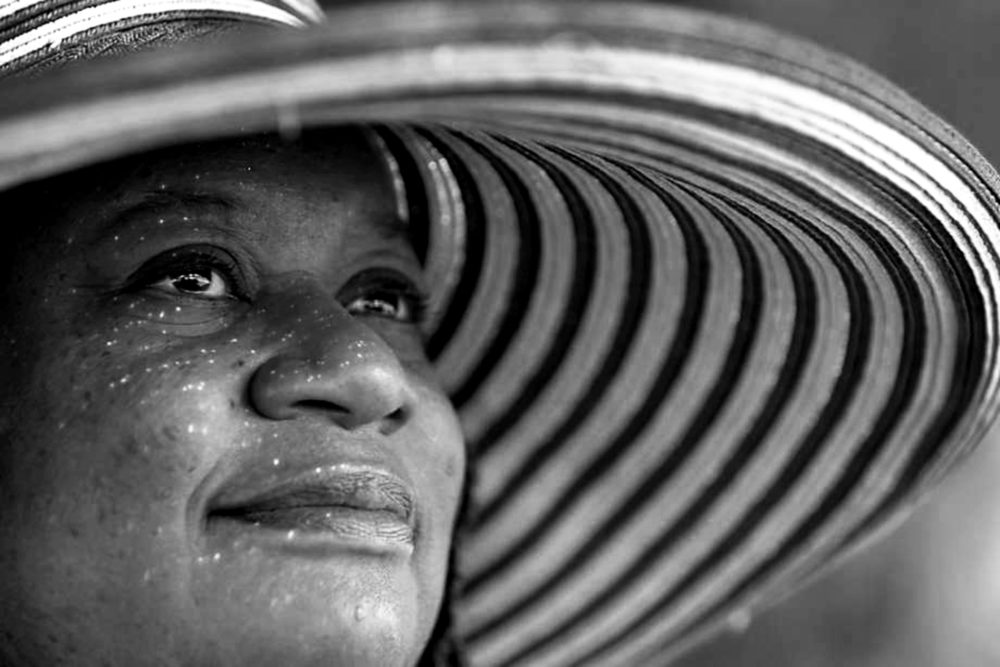
The reporter Cathren Killedjian is a senior communication studies and English double major.
The crowd talks amongst themselves and the auditorium fills with musings and sound. It’s Sept. 27, and about 60 people are gathered in University Hall 1000 at 11:20 in the morning. Judy Juanita, author, former Black Panther member, and social justice advocate is coming in to talk to us. Up stands a woman in a bright yellow dress, collarbone length hair and a huge grin. Her cheery and sunny disposition juxtapose the clear and authoritative tone of her writing. Juanita looks like sunshine, and her voice immediately brightens the room. She introduces herself, her casual, genuine tone is inviting. She is the type of human being who immediately makes everyone feel comforted and welcomed, and like an old friend.
Juanita looks back on her youth, which was a time to find and declare her own space in the world. She discusses the difficulties that she has had to put up with as a darker- skinned African-American woman, and the tumultuous journey of finding and using her voice to fight the powers that tried to silence her.
Juanita describes how she even struggled trying to find her place within her own community; how even amongst educated black men, she was not treated as an equal and was seen as an accessory to the movement, rather than the driving force. Juanita emphasizes the point of the personal being political and talks about her experiences with de facto feminism, which is a form of feminism that does not take place within the law or academia but within the streets. Juanita says that for her, feminism is not a choice, it is not a trend that she can choose to partake in on a whim. She talks about her family members who do not self-identify as feminists, and how they are still de facto feminists because they live and breathe their feminism. Their feminism does not go away because they got married and had children; they will always be feminists. She emphasizes the importance of education and she used education as a means to better herself and her community.
Juanita also talks about the colorism within the Black Panther movement. Hearing her speak on problems within the organization was fascinating. She commented on how the most well-known Black Panther Party member of the 1970s is Angela Davis because of her lighter skin. Juanita’s candor is infectious and well received. She discusses her sex life as a youth, the way women can lose themselves in their marriages, and the importance of education.
The way she speaks is not dated or out of touch with the reality that youth are facing today. Everything Juanita discusses is universal and relatable, and she was met with a lot of interest by the crowd. Juanita’s genuine curiosity, her openness to continued growth, her engaged dialogue with the students who posed questions at the end of her talk, and her devotion to not coming across as just an academic was impressive and inspiring for all in attendance. As a highly respected member of the feminist and black community and as a “feminist foot solider” (a term that Juanita coined), Juanita’s, intelligence, warmth, and courage provided students with a new ideal to aspire to.
Juanita’s talk was in conjunction with this year’s Bellarmine Forum, themed “Collaboration and Creativity: Faith, Culture, and the Arts.” The Bellarmine Forum is an annual celebration of the life of the mind in relation to LMU’s mission and heritage. Each year, the Bellarmine College of Liberal Arts offers a series of interconnected events and undergraduate courses that engage an important question or theme. The 2018-19 forum is a partnership between BCLA and the Marymount Institute for Faith, Culture and the Arts celebrating the power and potential of human connection and creative collaboration. This year’s forum pays special tribute to the 50-year anniversary of the affiliation of the Religious of the Sacred Heart of Mary and the Marymount tradition with the Jesuit and Ignatian traditions at LMU.



